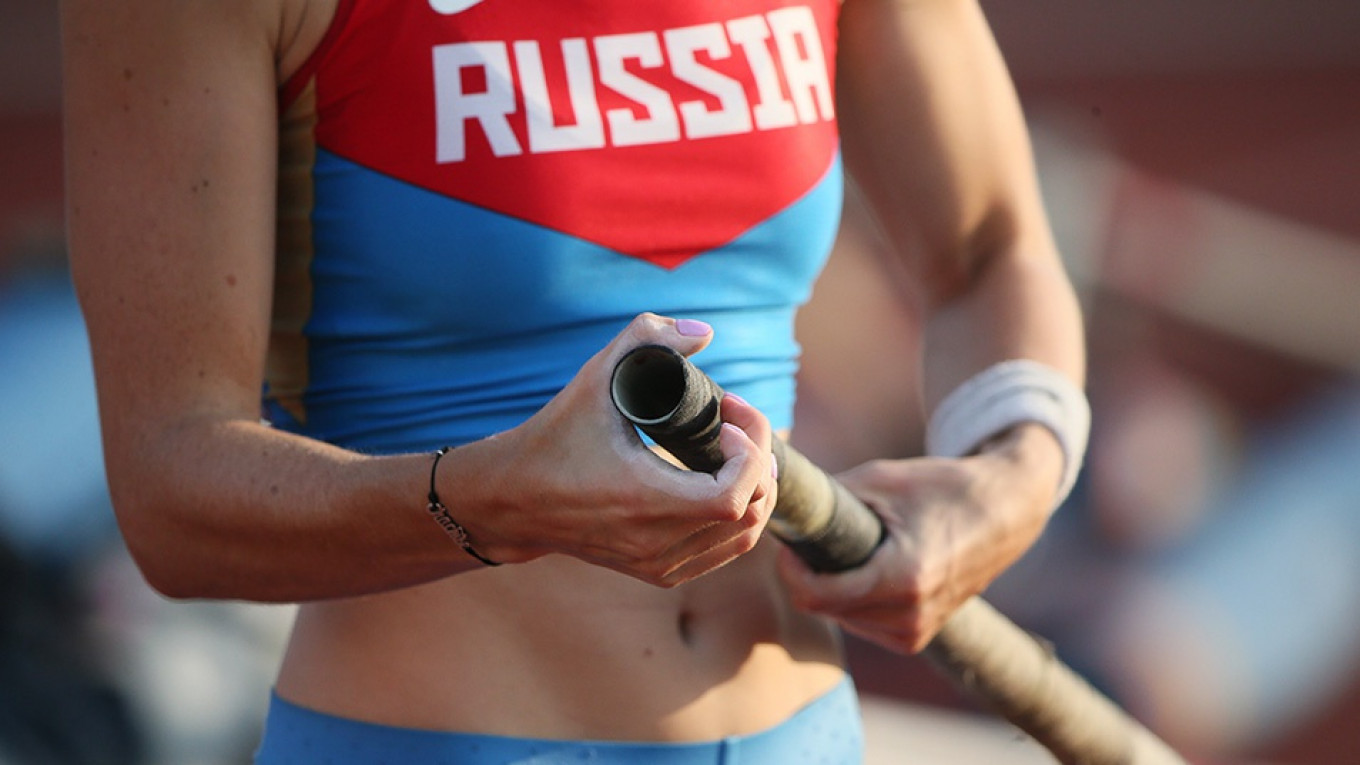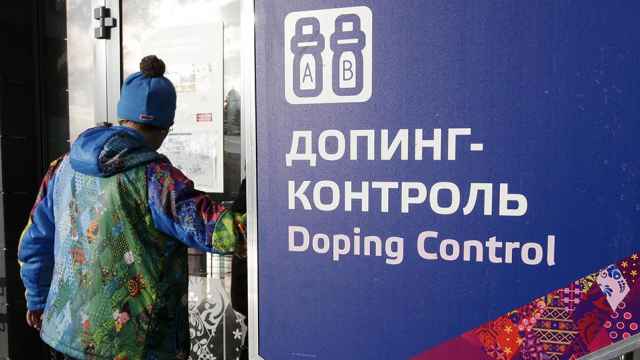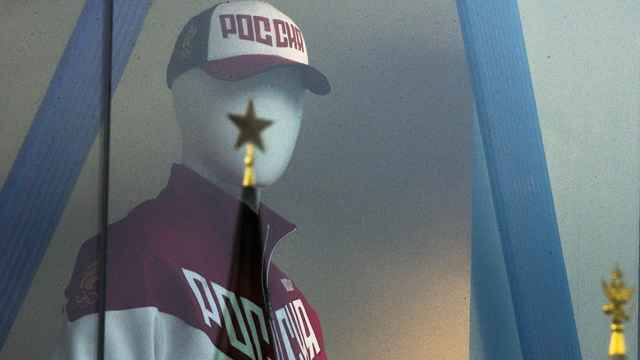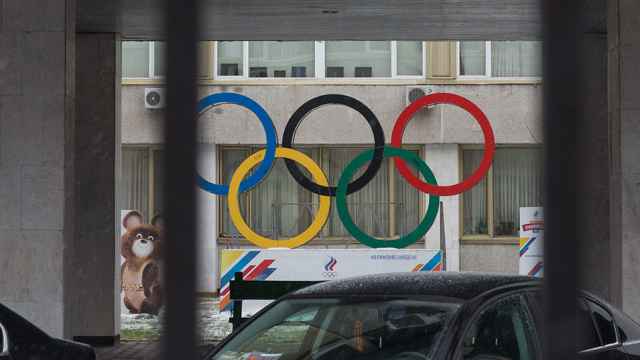Not even a four-year ban on competing under the national flag and hosting major athletic competitions can force Russia — that is, its political leadership and sports functionaries — to admit they’ve done anything wrong. That’s a warning not just to athletes, but to all Russians: They’re hostages to their leaders’ bungling, pig-headedness and siege mentality.
The ban was imposed on Monday by the executive committee of the World Anti-Doping Agency. This was expected after WADA discovered earlier this year that the database of a Moscow antidoping lab, handed over to it for inspection, had been altered to erase positive test results. WADA compared the database to an earlier version, handed over by a whistle-blower, likely the lab’s former head, Grigory Rodchenkov, who lives in the U.S. under witness protection.
Ever since the alterations had been discovered, Russian sports officials have maintained that Rodchenkov made the changes himself, because he’d retained the ability to administer the database remotely for some time after his 2015 departure from Russia. But not even the current head of the Russian antidoping agency, Yuri Ganus, believes this: WADA has shown him that some alterations were made as late as this year.
In other words, all the doping bans imposed on Russian sports since 2017 haven’t made it clear to those who tampered with the database that the time for cheating was over. There are other signs that certain Russian sports federations and coaches haven’t gotten the message: Late last month, the Athletics Integrity Unit, an antidoping body formed by the International Association of Athletics Federations, charged Russia with obstructing an investigation into a high jumper’s avoidance of doping tests.
WADA’s ban is tougher than the sanctions previously imposed on Russian athletes and sports officials by WADA, international federations and the International Olympic Committee. Russians already had to compete under a neutral flag at the winter Olympics in Pyeongchang, South Korea, last year and at a number of other major events. At the 2017 athletics world championship, Russian athletes were even banned from painting their fingernails the colors of the national flag. But now, all sports federations have been told to ban the Russian flag and anthem and to transfer events awarded to Russia elsewhere, unless that’s “legally or practically impossible.”
That means Russia may lose three world championships it’s set to host — volleyball in 2022, ice hockey in 2023 and water sports in 2025. The Russian national team will be forced to wear some kind of neutral jerseys at the 2022 soccer World Cup in Qatar. Russia, however, will be able to stage its allotted share of games in the Euro 2020 soccer championships because that’s a regional tournament, not a global one.
Even to be allowed to compete “for themselves” rather than their country, Russian athletes will need an absolutely clean doping record, and their entries in the infamous Moscow lab database cannot have been altered. Tests for them will be especially rigorous.
But for the clean Russian athletes, too, the next four years will be dismal, and not just because they won’t be able to wave the flag. Sponsorship deals from outside Russia will be hard to come by. To be able to attract sponsors, some athletes will be tempted to change their nationality. Others will clench their teeth and go on, including high jump world champion Maria Lasitskene.
“What happened today is a disgrace,” she wrote on Instagram. “I’ve never intended to change nationality, and I won’t do it now. I’ll keep proving that Russian athletes are alive, even in a neutral status. I’ve done that in recent years, too. All that bothers me is that athletes are alone in their struggle, and the leaders of our sports defend us in words only.”
The words flowed freely after the WADA decision. Pyotr Tolstoy, deputy speaker of the Russian parliament, said Russia shouldn’t have agreed to compete under a neutral flag in Pyeongchang. “Today’s decision is just the continuation of that tendency toward excluding Russian competitors from international sports,” he said.
Some Russian sports figures and functionaries have called for organizing alternative sports events — say, BRICS games for athletes from Brazil, Russia, India, China and South Africa.
But neither the indignation at supposed Western hostility nor the frantic search for alternatives to globally recognized competition does anything for someone like Lasitskene, who has proved time and time again that she doesn’t use forbidden substances, or for the inspired Russian national soccer team that surprised the nation by its fighting spirit at the 2018 World Cup. The only practical help these athletes can expect from the Russian sports officials takes the form of appeals at the Court of Arbitration for Sport in Switzerland — a tack Yuri Ganus considers doomed to failure.
Essentially, by refusing to confess to tampering with the database and submitting unadulterated results and test samples to WADA, Russian sports officials, and with them the Kremlin, have decided to wait out whatever sanctions are imposed. That’s a high price to pay for President Vladimir Putin’s short-lived triumph at the 2014 winter Olympics in Sochi, the $50 billion extravaganza where Russia won the most medals — and where the doping scandal began.
The Kremlin is playing the same waiting game with regard to sanctions imposed on it for depredations against Ukraine. It would rather have businesses endure funding and trade restrictions than admit ever having been in the wrong.
But in a way, the sports scandal is worse. Putin and his underlings in the sports hierarchy essentially have decided to shrug off the damage to the athletic careers of specific people who are Russia’s pride and glory, because in their view, admitting guilt for obvious shenanigans would be more damaging to the country’s reputation.
Russians without Olympic ambitions should have no illusions: If their lives, careers, hopes ever come into conflict with the need to protect the state from the slightest inconvenience, they, too, will be sacrificed in the blink of an eye.
This article was first published in Bloomberg.








